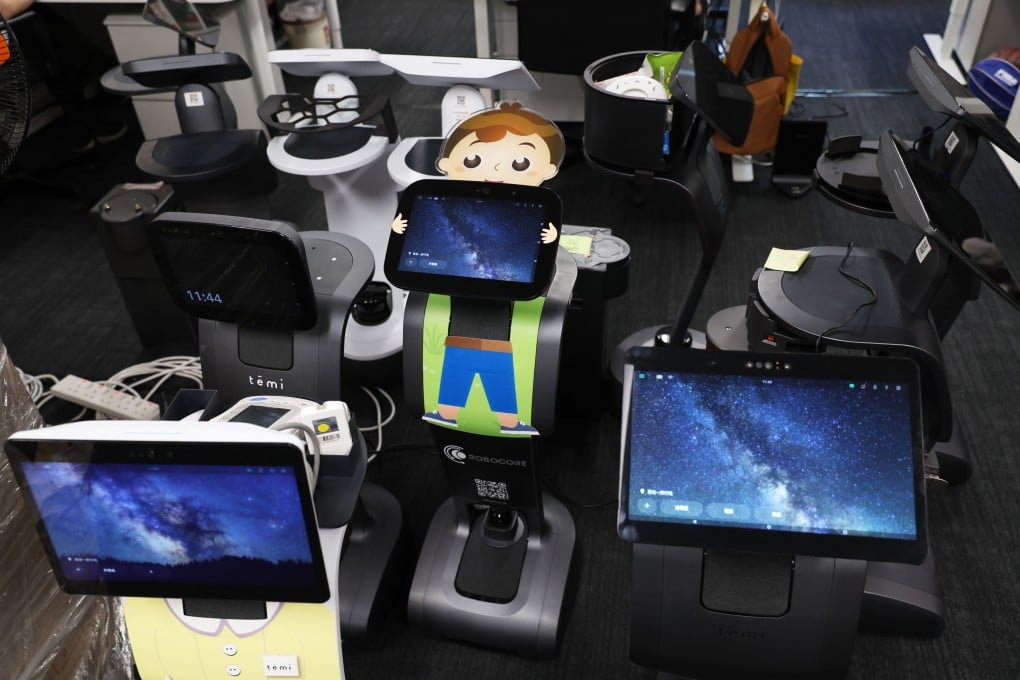Advertisement
Robots move into Hong Kong care homes, cleaning up, playing mahjong with residents
- Pandemic spurs demand for robots that help record temperature, connect residents with family members
- Robots and ‘smart city’ innovations are featured at this year’s four-day International ICT Expo
Reading Time:2 minutes
Why you can trust SCMP

The staff of a Hong Kong care home for the elderly went on a hunt the day their four robots went missing.
Usually used for video chats and playing music, they were tracked down to the bedside of some residents.
“It turned out the residents had ‘summoned’ them to play mahjong,” said Lim Long-hei, founder and chief executive officer of Robocore, the Hong Kong distributor of Israeli-made Temi robots.
Advertisement
Although the squat 100cm machines were not programmed to play games, the residents had found a way to download mahjong onto them.

The home ended up buying 10 more robots to not only help with repetitive tasks, but also entertain residents, he said.
Advertisement
Advertisement
Select Voice
Choose your listening speed
Get through articles 2x faster
1.25x
250 WPM
Slow
Average
Fast
1.25x